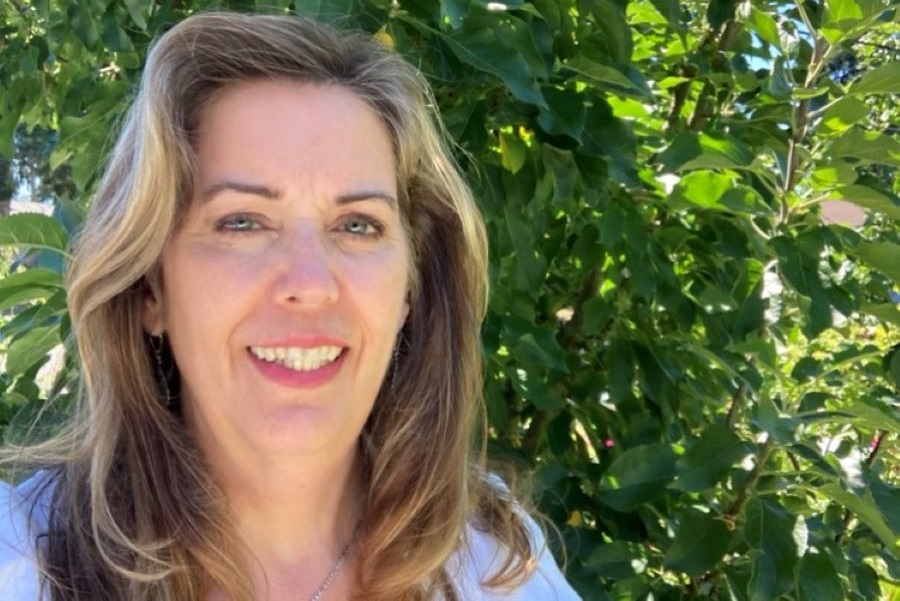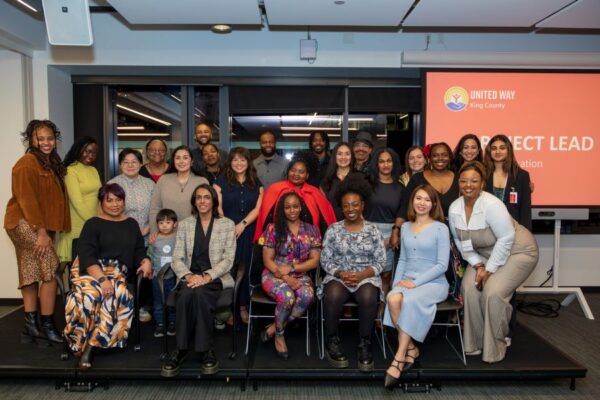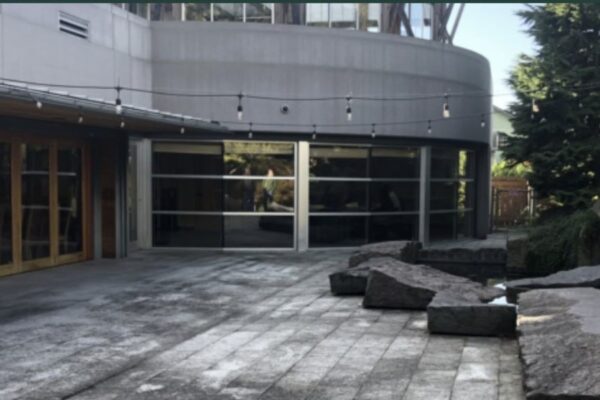Is Working Within Comfort Zone as a White Manager Inherently Racist?
This blog post is written by Colleen Laing, United Way of King County director, systems change & public policy.
United Way of King County is undergoing transformation to become an anti-racist organization engaged in racial justice work. This has significant implications for how staff and managers work and engage with each other and the community—particularly how our white managers and staff engage BIPOC staff and communities.
Historically, many, if not most, workplace culture, norms and practices–including the ways people communicate, treat meeting times, set deadlines, make decisions and even dress–have been centered around white culture. Employee performance and project success are evaluated against conformity with white dominant cultural norms, e.g., the mantra of better, faster, cheaper.
When employees or community members show up with a different way of communicating, such as a priority of building trusting relationships, adhering to alternate perceptions about timeliness and deadlines, or decision-making practices, they are often viewed not as bringing in fresh perspectives, but rather as failing when measured against how things “should” be done.
Historically, when traditional nonprofits such as United Way seek to cultivate relationships with BIPOC communities, culture clashes ensue. I experienced this last summer when tasked with launching our BIPOC-centered systems change work. Part of that work was BIPOC community engagement. I planned to hire a replacement to take on the public policy work I had been doing so I could engage BIPOC community leaders in planning a community engagement process. It was all going to be very linear and my timeline for both the engagement and the planning was six weeks.
Then, the best thing that could have happened did happen: one of my then BIPOC colleagues, Ruel Olanday Jr., told me, “Colleen, you are not the right person to do that work.”
D’oh! I’d like to express my gratitude for his courage in telling me this truth. I may be philosophically on board with our new approach and energized about moving it forward, but what I don’t know about building trusting relationships with BIPOC communities could fill volumes.
I was fortunate in that rather than replacing myself with another MPA policy analyst with lobbying and elected office experience (all opportunities that skew strongly toward middle class, white candidates), our top candidate was Dawa’ Goes Behind, an African American and Indigenous community organizer who was ideally suited to take on our community engagement work.
Now my colleague, Dawa’ has spent nearly a year building trust internally with a cross-team group of BIPOC staff and externally with key BIPOC-led, advocacy-focused community organizations.
Later, we at United Way launched an internal team: BIPOC Think Tank. We spent two, 90-minute meetings getting to know each other. My head did not explode, but I will tell you that there were times I thought it might. My level of anxiety was off the charts at needing to hold a space for this group to work at “the speed of trust” rather than to my timeline.
Usually, when I feel anxious about work that needs to get done for a tight deadline I just work more, try harder, go faster and get things done myself. This exemplifies the saying, “if you want to go fast, go alone, if you want to go far, go together.”
The second thing that happened is the group asked me to step out of the room and provide a BIPOC-only safe space, allowing Dawa’ to lead.
I am finding there’s an inherent and fundamental clash of worldviews and it is not possible to be antiracist while employing hierarchical decision-making, clinging to conventional leadership roles, or privileging efficiency and timeliness over relationship building and trust.
Colleen Laing, United Way of King County director, systems change & public policy
My natural mode of work is very individualistic. It doesn’t result in deeply connected relationships. The work Dawa’ has done with the BIPOC Think Tank has been amazing. Once trust was established, the group has served as a review and accountability stage for many of our team’s internal processes to shift our work toward racial justice. They are highly productive and successful because they took the time up front to build trust. They went slow in order to go far.
The BIPOC-centered approach is focused on community-level success where everyone is thriving. That’s expressed by being in relationship with each other and taking time to check in and see how each other are doing. This collective-focused, cooperative approach feels supportive and elevates social care and well-being. It takes a long time to create trust, then work moves fast once everyone knows that their partners are there for the collective good.
When I was in grad school, we played a game in one class called “win as much as you can.” We worked in pairs for the competition, and soon it became apparent that the best way to win was through cooperation. However, there were still sets of players who wanted to compete and would not get on board with cooperation. They wanted to tank everyone else’s outcomes in favor of getting ahead—even if it meant receiving less than they would have received through cooperation.
I am finding there’s an inherent and fundamental clash of worldviews and it is not possible to be antiracist while employing hierarchical decision-making, clinging to conventional leadership roles, or privileging efficiency and timeliness over relationship building and trust.
How do we navigate this clash of cultures and world views? Dive on in, the water is fine–get comfortable with being unsettled, because I’m finding I enjoy the enlivening feeling of being in trusting relationship with my colleagues and community partners and focused on collective well-being a lot more than I enjoy the competitive one-upmanship of “normal” white dominant work culture.





Comments